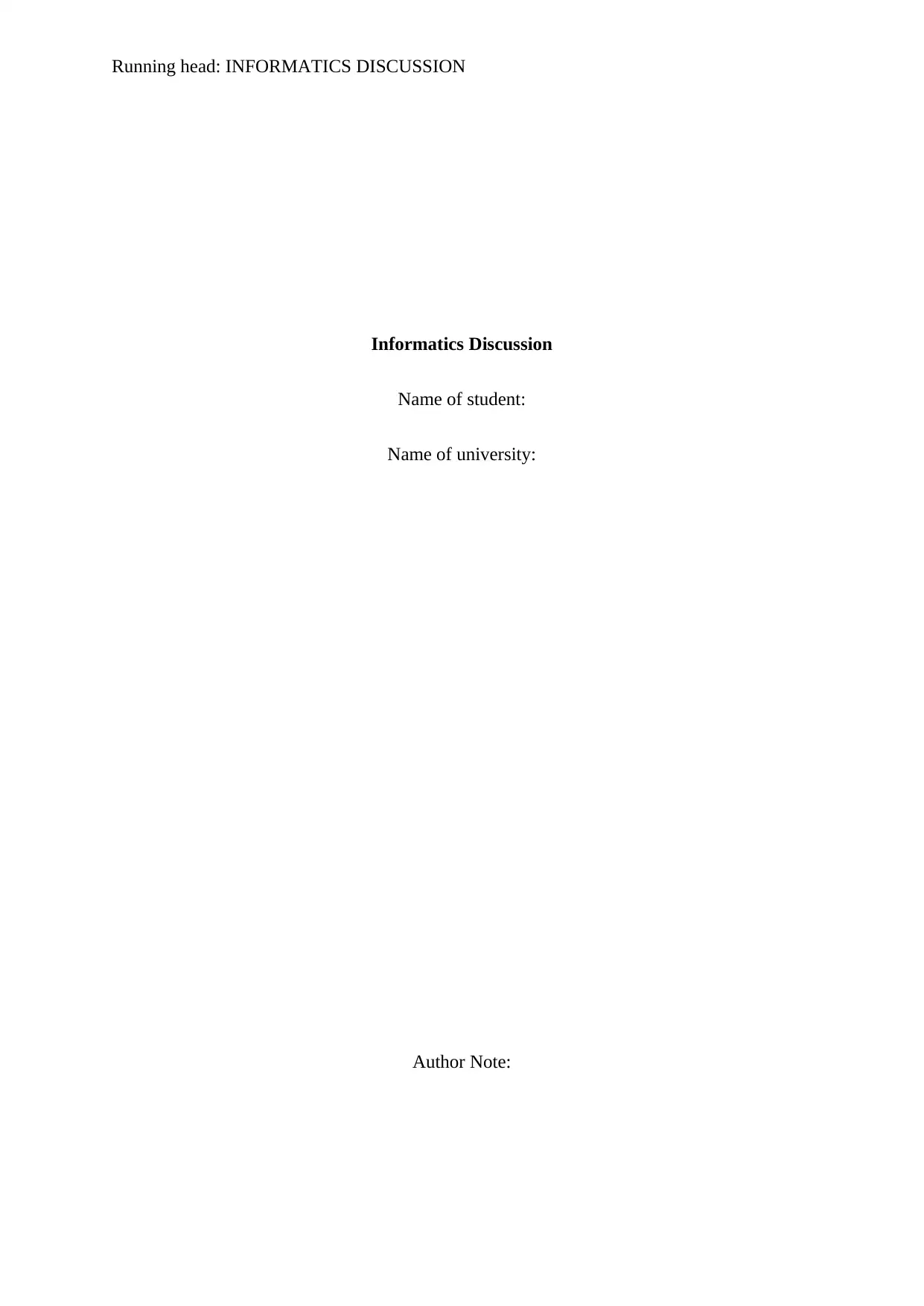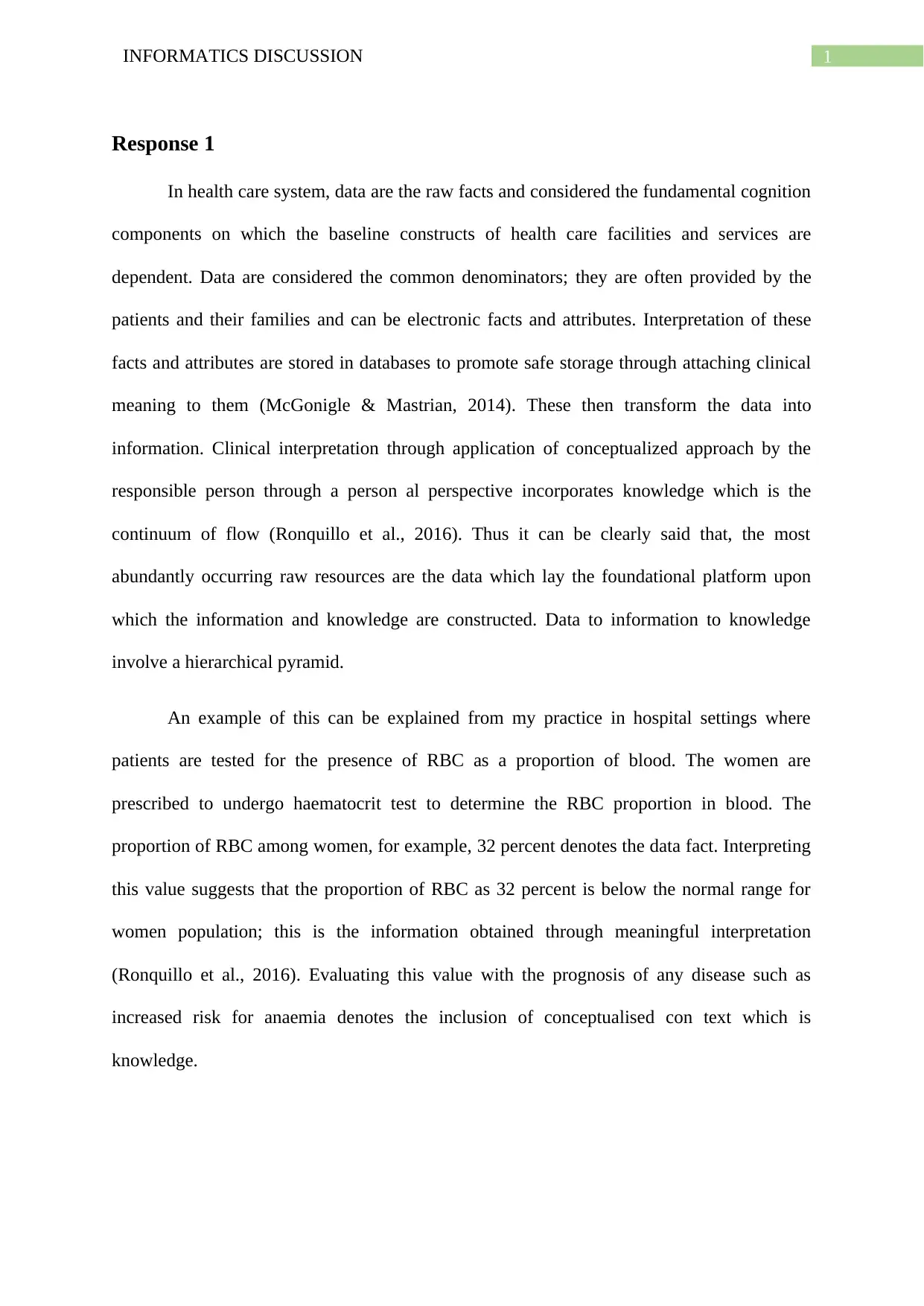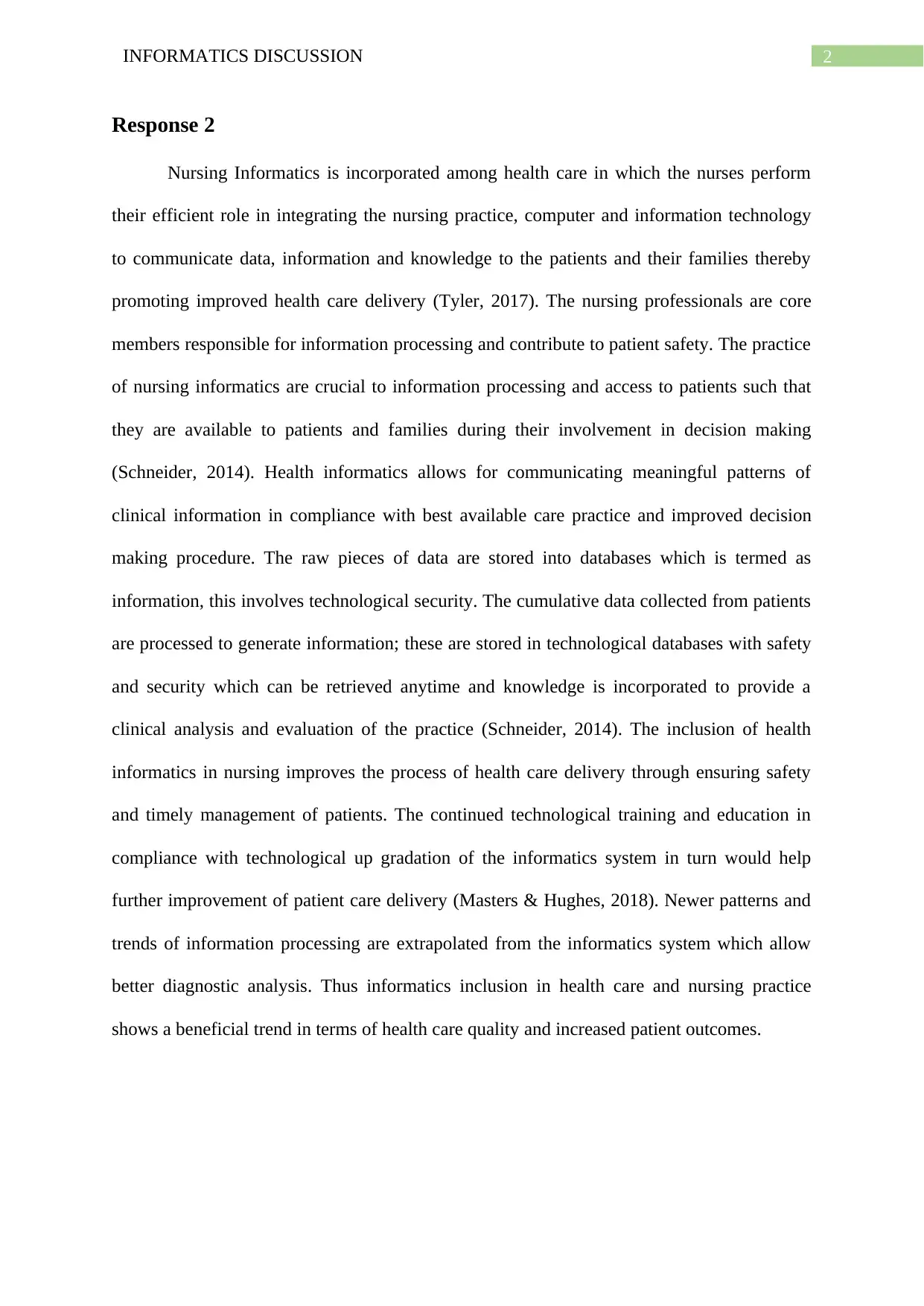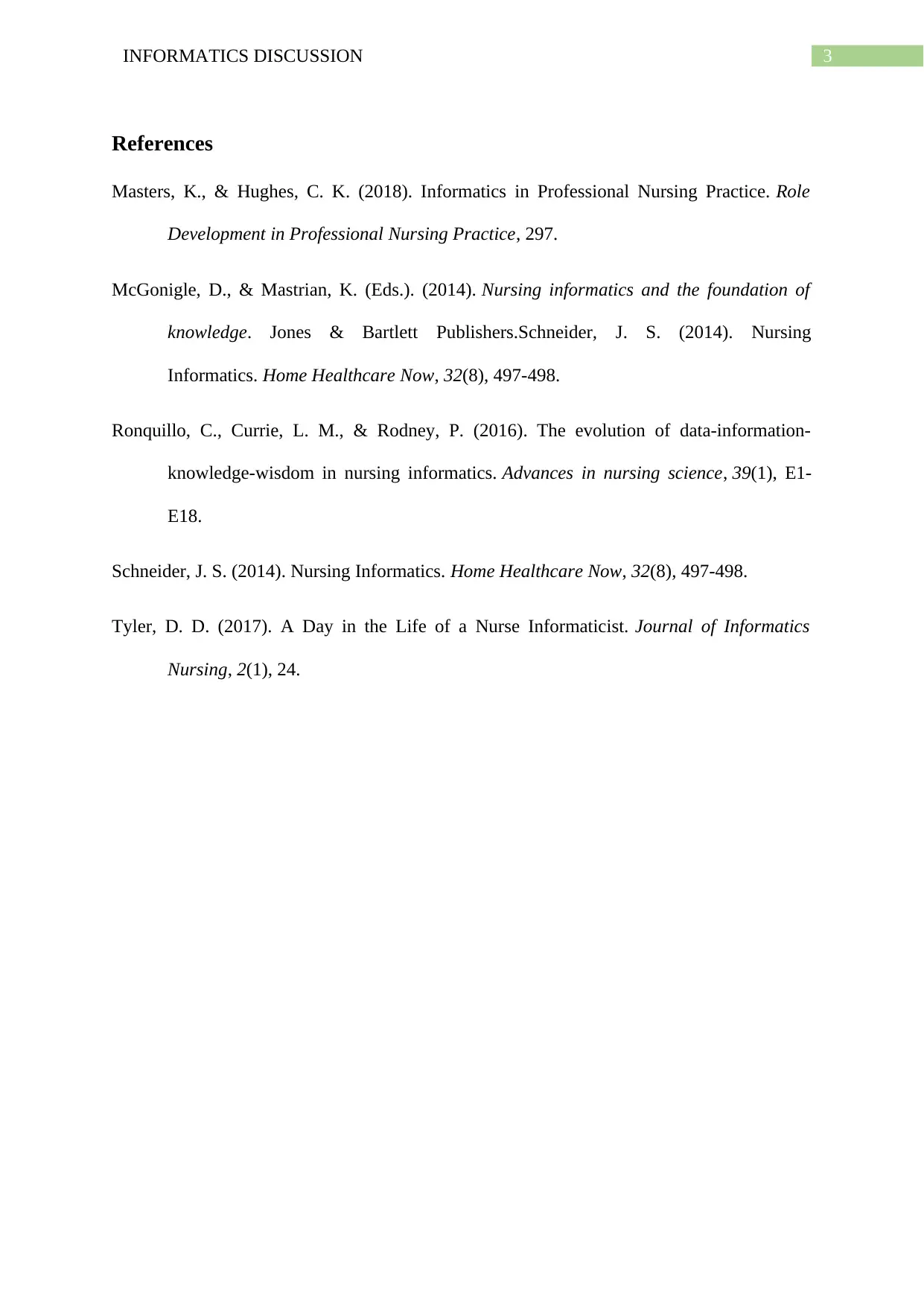Informatics Discussion
VerifiedAdded on 2023/04/23
|4
|778
|384
AI Summary
This discussion covers the importance of data, information, and knowledge in healthcare, the role of nursing informatics, and the benefits of informatics in healthcare delivery.
Contribute Materials
Your contribution can guide someone’s learning journey. Share your
documents today.
1 out of 4
![[object Object]](/_next/static/media/star-bottom.7253800d.svg)








